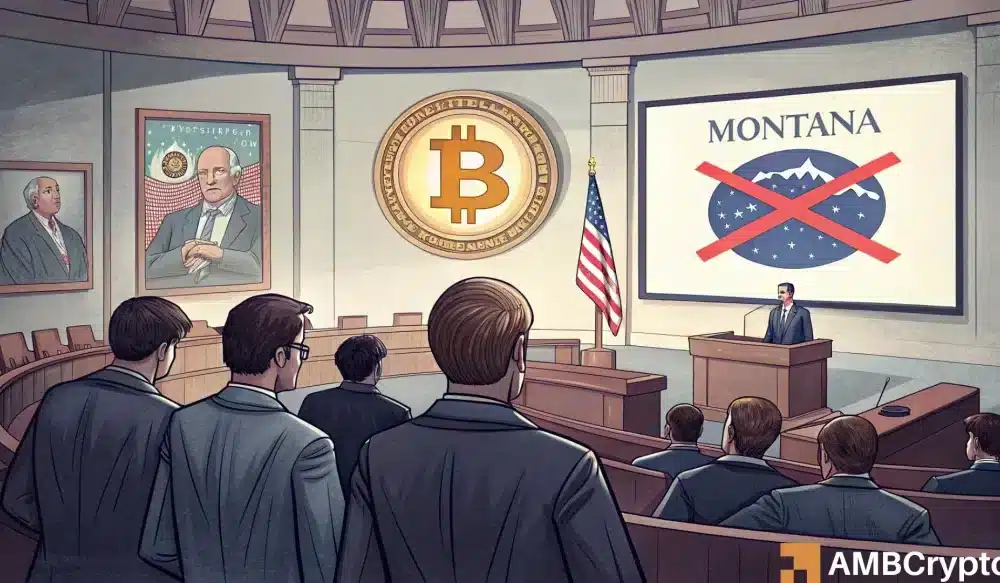With the competition heating up to establish a Bitcoin [BTC] Reserve in different parts of the United States, inspired by former President Donald Trump’s idea of a national ‘Strategic Bitcoin Reserve,’ Montana has faced an unexpected setback.
The state’s ambitious House Bill No. 429, which sought to establish a dedicated revenue account for investments in precious metals, stablecoins, and high-cap digital assets, failed to pass through the House of Representatives.
Although BTC was the only asset meeting the bill’s stringent $750 billion market cap criterion, the proposal was rejected in a 41-59 vote, with numerous Republicans opposing it during the most recent floor meeting.
What Led to the Rejection of the Bitcoin Reserve Bill by Montana Legislators?
During Montana’s House Floor Session on February 22, State Representative Steven Kelly voiced his concerns.
“It is still public funds, and we are accountable for them, and we must safeguard them.”
He further stated,
“These kinds of investments are excessively risky.”
An amendment proposing to finance the bill using interest generated from the American Rescue Plan Act was tabled but failed to secure adequate backing.
Although the majority of Republicans supported the proposal, with 40 votes in favor, 18 legislators opposed it, aligning with the unanimous Democratic resistance.
Similar Views Expressed by Other Officials
However, Representative Lee Demming argued that the bill was designed to yield better returns on public funds.
While advocating for the bill during the House Floor session, Demming asserted that if the state held taxpayers’ money, it was obligated to maximize returns for the public benefit.
Supporting the bill, Demming stated,
“If we are retaining taxpayers’ funds, we owe it to them to achieve the highest returns possible, or we return the funds to them directly. Therefore, I endorse this bill for that reason.”
Meanwhile, Representative Bill Mercer expressed reservations about authorizing Montana’s Board of Investments to invest in cryptocurrencies and NFTs.
He remarked,
“I did not come here for that purpose.”
Another lawmaker added,
“This feels like speculation to me.”
Despite some legislators acknowledging the potential of House Bill No. 429, calls for additional amendments fell short of securing its approval.
Montana’s Recent Decision Differs From Other States’ Approaches
The bill, which had previously progressed through Montana’s business and labor committee with unanimous Republican support, ultimately fell short in the House, thereby halting its progress at this time.
Therefore, to reintroduce a Bitcoin reserve initiative, new legislation would need to be introduced in upcoming sessions.
Meanwhile, 24 states in the U.S. are pursuing similar legislation, with 20 bills still under consideration in states like Arizona, Texas, and Ohio.
Montana now stands alongside Wyoming, North Dakota, and Pennsylvania as one of the states to reject such proposals, while others such as Utah and Arizona continue to advance similar bills for Senate deliberation.

